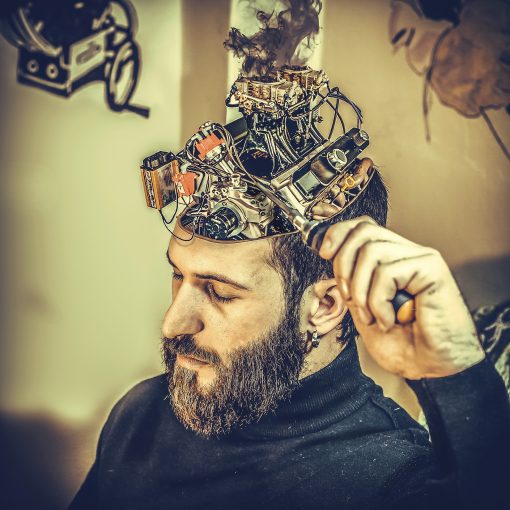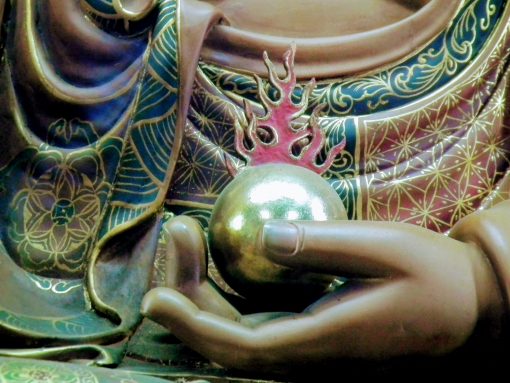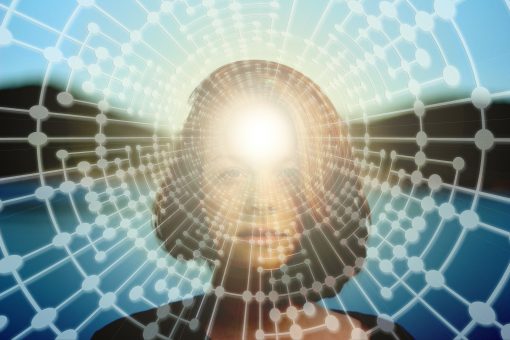
If you suffer from anxiety and depression, I know how yo feel. I struggled with social anxiety for at least 20 years, maybe more. In my search for a cure, I visited several psychologists with zero results. The anxiety exercises I was shown offered very little in the way of managing anxiety and did absolutely nothing for curing them.
Anti-depressant pills were even worse. They made my anxiety worse – to such an extent I felt my skin crawling. The pills went in the bin after just days.
After several years of working with trained psychologists, I gave up. I was not convinced then, and I am not convinced now that conventional treatments for anxiety and depression offer a solution. Even medically trained professionals are questioning the value of pharmaceuticals.
There’s a reason for that.
“It is very difficult to make economically viable models for antibiotics. With heart medication or anti-depressants, a lot of people take them for a long time so you can make money back. An antibiotic that works is unlikely to be used for more than a couple of weeks.” ~ Colin McKay, from the European Federation of the Pharmaceutical Industries and Associations
According to the World Health Organisation (WHO), around 260 million people suffer from anxiety disorders. The precise causes for anxiety are unknown, although mental health studies attribute them to genetics, environment, and personal experience.
What experts do know is that anxiety is largely attributed to psychological disorders. How you think has a knock-on effect with your biological system.
What’s more, psychological disorders can easily be avoided because the mind creates a perception of reality that is not always true. But what the mind can create, the mind can cure.

The ancient Greeks used a similar concept Hippocrates called ponos. The ‘Father of Modern Medicine’ discovered that prolonged exposure to stress is a significant burden on the body and causes an imbalance that leads to illness.
Ponos would later be written into Greek mythology as the God of hard labour which is literally associated with the toil of work. However, when the meaning is applied symbolically, it reveals the strain the body suffers from the release of neurotransmitters.
Neurotransmitters are chemicals that are naturally released in the brain and the cause of emotions. They also carry messages from the brain, through the central nervous system and peripherals nervous systems so the body functions as it is supposed to.
One of the functions performed by the brain is to release neuro-chemicals in relation to a thought. When you have a thought, or experience you are affair off, the subconscious mind tries to protect you from perceived threats by releasing adrenaline.
Neurotransmitters are essentially nature’s way of self-preservation. The subconscious is merely protecting you from physical and emotional stress. Once the perceived threat has gone, your bodily functions return to normal and work begins on cleaning out toxic chemicals so that infected parts can grow and heal.
However, because modern lifestyles cause the brain to trigger stress hormones on a regular basis, the body struggles to regulate toxic chemicals. The result is a mental and physical illness, one of which manifests of anxiety.
The root cause of anxiety will be different for everyone, but in general, it is a psychological disorder that originates from a false perception manufactured by the mind.

Perceived threats cause the mind to close down in order to protect you emotionally. If this happens on a regular basis, you can develop psychological patterns of negative thinking.
I can speak from experience. When I was a teenager I’ve suffered from stress-induced anxiety. My belief was that nobody liked me because I used to get picked on a lot. Most days I felt outcast and alone.
In reality, I had a lot of friends. However, I was small and had alternative views. Because of this I lacked confidence and was often afraid to speak for fear of being ridiculed.
This caused me to feel anxious. Yet the problem was not that people did not like me, I was just an easy target for people to pick fun out of me. But the reason for that is because in my mind, I didn’t think people liked me. Subsequently I developed an attitude that was a barrier to protect my feelings.
The idea that nobody liked me was a self-fulfilling prophecy and by the time I left school I had lost friends and rather than being picked on was bullied. In reality, it was because I didn’t like myself. And that’s a whole other story.
There were times when I was walking to school that my stomach would churn and my legs felt weak. At the time, I didn’t realise anxiety festering throughout my body.
When I was 31, I had a full-blown anxiety attack. My entire body froze, I was vomiting, and I couldn’t breathe. At one point, I couldn’t breaths and seriously thought I was going to die of asphyxiation.
To overcome my anxiety disorder, I visited several psychologists. They gave me pills that made me feel worse. They asked about my family but didn’t explore feelings about my past or help me find a root to the problem. The root of the problem was never even mentioned.
For an hour or two after these sessions, I felt better. But as I lay in bed at night, that familiar heavy feeling lingered in my stomach. On a bed night, I would lay in bed shivering.
I decided conventional medicine was a waste of time of money. So I turned to meditation. At first, that made the anxiety worse, because I couldn’t relax. And I didn’t know how to. Furthermore, I was not meditating properly – I was using a handbook method which, practically, is useless.

Once I mastered the art of meditation over several years, I developed mechanisms that enabled me to relax my mind, and subsequently my body. I then developed a technique that enabled me to determine the root cause of my anxiety. it turned out to be the same technique the alchemists have been showing us all along – albeit their teaching are disguised by esoteric symbolism.
Decoding the hidden meanings of symbolism, essentially helped me to perfect healing techniques you can use to cure anxiety and other illnesses. Both my sister, Michelle and I have removed the emotional wounds that were responsible for limiting believes in our subconscious programming that caused anxiety and debilitating mental disorders including drug addiction, bulimia and body dysmorphia.
The pinnacle of my anxiety disorder occurred in 2006 when my entire body froze and I vomited violently. I almost choked to death on my own vomit. In the subsequent three years, it became apparent psychology had not accounted for the mind’s role in causing anxiety. It was certainly never explored by the practitioners I visited.
Today, brain chemistry is being studied much closer with the use of fMRI technology. Researchers now think that the areas of your brain that control fear responses may be involved.
This diagnosis makes perfect sense. Studies have shown that anxiety is generally linked to experiences in life that trigger the Fight-Flight, or Freeze mechanism. Common problems include:
Life experiences such as these cause a lack of self-esteem. They can make a person easily flustered and feel inhibited. As a result, you become timid and the anxiety gets even worse.
Anxiety can often start in childhood and become exacerbated by the pressures of being an adult. However, that is not always the case. Anxiety in adults can also develop due to:
Regardless of the cause of anxiety, the disorder should be addressed before it becomes debilitating to your life. Some people don’t even realise they have anxiety until it manifests as an attack.
When you meditate, or just sit still and observe your feelings, you can self-diagnose whether you have anxiety or not. If you do, try these five exercises to help.
Jacobsen’s muscle relaxation therapy is a great exercise to perform just before you go to sleep. It helps you loosen the tension built up during the day and helps you get a good night’s sleep – which also helps combat anxiety.
I’ve dealt with the mechanics of Jacobson’s muscle relaxation therapy in a previous article, so won’t go over it again here.
Also, for more tips about how to sleep with anxiety, check out the advice from the guys at Tuck. They are experts in this field.
(Disclaimer: I have no association with Tuck, nor am I involved in an affiliate program with the company. I just appreciate the work they do).
Anxiety is a symptom of stress and can be aggravated by chemicals as much as it can by physical, mental or emotional influences. Therefore, anxiety can be improved or worsened by what you eat.
Scientists have discovered that a healthy diet rich in probiotics help to alleviate anxiety. When you consider that emotions arise from the sacral chakra in the pit of the stomach, this makes sense.

A study performed on psychology students that were prone to high anxiety in the College of William and Mary experienced fewer symptoms of social tension after keeping to a diet of fermented foods.
We already know that probiotics alleviate gastrointestinal symptoms, and that anxiety is accompanied by turbulence in the stomach. It was discovered that the intervention of probiotics helped to ease neuroticism because the body was able to respond to stress better.
If you do suffer from stress and anxiety, avoid caffeine, alcohol, dairy, sodas and fried/fast foods.
Anxiety is predominantly caused by the mind. The stories you create in your head are usually false perceptions. And because society is designed to make you have negative thoughts that act as self-deprecating values, your anxiety gets worse as you get older.
Taking charge of your mind is the key to curing anxiety. It is therefore prudent to be mindful of your thoughts. When you have a negative thought, notice it, and try to alter your way of thinking by looking for the positive spin on the situation.
And there is always a positive spin.
Whilst the first two anxiety exercises in this list help you to manage your condition, the cure starts with understanding your mind.
Worry, anger, hate, stress and all the other negative thoughts that emerge from fear-based emotions are damaging to your mental and physical health.
You can use mindfulness techniques to understand where these feelings are coming from, and once you know the source, you have the power to reprogram your mind.
This is what Master Mind Content teaches you how to do in our 9-Step Anxiety & Depression treatment and also our 11-Step Self-Development program.
It seems that every alternative therapist suggests using positive affirmations to help change mental programs and encourage positive thoughts and emotions.
The reason for this is that affirmations work – but only if they are performed correctly. Standing in front of a mirror and repeating mantras over and over is not an effective exercise for curing anxiety or depression. What is does do is enable the mind to recall positive actions when you need them.
Neuroscientists have a saying: “What is fired is wired.” They have this mantra becomes when we have a thought, it fires a neurone in the brain which then carries a message (via neurotransmitters) to other parts of the body.
When a thought, idea, belief system, or action is fired often enough it becomes wired – in other words, it fixes itself as part of your permanent make-up.
Thoughts, trigger emotions and emotions prompt actions. The energies this triumvirate of conditions generate becomes your personality, characteristics and gait.
Therefore, when attempting to release yourself from negative thinking patterns and install positive programs into your subconscious, you have to evoke the appropriate emotion you want to associate with a thought.

People that suffer from anxiety have thoughts and emotions that promote neurochemicals that cause social tension. Use self-talk to switch negative thoughts into positive outlooks, and use your imagination to invoke emotions you want to relate to specific thoughts.
You can do all this by learning how to use positive affirmation in the correct way. With practice, you will master your mind and learn to take control of your emotions. Then you can kiss goodbye to feeling anxious about anything.
Theories about the unconscious mind vary widely in the field of psychology. For me, the theories of Carl Jung and Jean Piaget resonate with me the most – together with Sigmund Freud’s topographical model of the Mind, of course.
It is understood that the subconscious mind also performs many functionalities. One of the most important, that often gets overlooked, is that the subconscious attempts to communicate with you through emotions, symbols and physical prompts such as aches and pains.
When you observe your unconscious and understand what these prompts are, you are better placed to make decisions that improve your life. And good decision making is required for all aspects of your life.
Master Mind Content has extensive knowledge and a library of content that helps you read and understand your subconscious through sacred symbolism.
We are also working to better understand metaphysical pains which you can use to help release blocked energies that are typically caused by thoughts and actions that hold you back. Your unconscious wants you to stride forward.
If you suffer from anxiety, depression or other issues that you feel limits your enjoyment of life, contact Master Mind Content and learn how powerful your mind really is.
